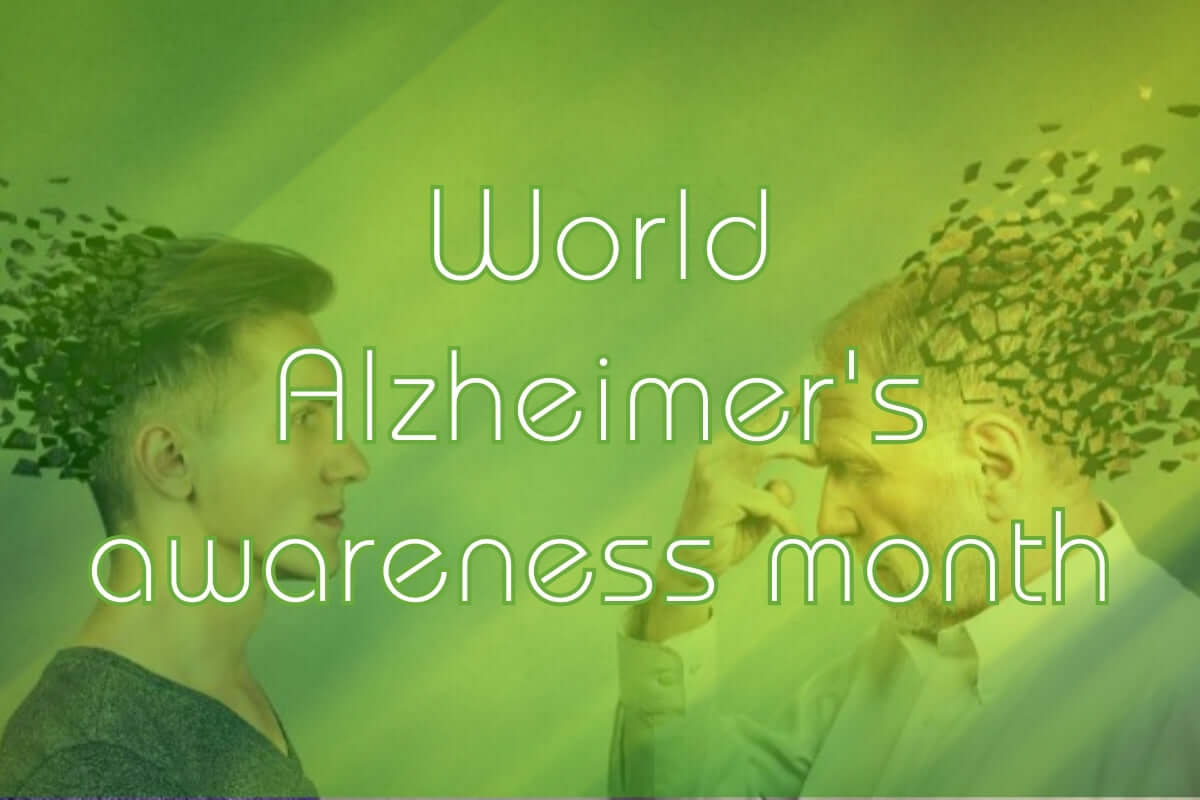Every year, as September rolls in, the world comes together to observe World Alzheimer's Month, an important international event orchestrated by Alzheimer's Disease International (ADI). The primary objective of this month-long initiative is to not only raise awareness but also to challenge the pervasive stigma that surrounds Alzheimer's and dementia. There are around 900,000 people living with dementia in the UK and it is not going away, anytime soon.
What is Dementia?
Dementia is a term that encapsulates the gradual decline in brain function, giving rise to a cluster of distressing symptoms. These symptoms encompass a spectrum of cognitive abilities, ranging from memory loss and reduced thinking speed to diminished mental acuity, language difficulties, impaired judgment, fluctuating moods, compromised motor skills, and even a struggle to perform routine tasks. Unlike the natural processes of aging, this decline in cognitive faculties is profound and unnatural.
The impact of dementia is far-reaching, influencing virtually every aspect of a person's life. Receiving a dementia diagnosis is a life-altering moment that ripples through an individual's existence. The prospect of losing one's sense of identity and independence can trigger a whirlwind of emotions: anger, frustration, confusion, and a deep sense of loneliness.
As we observe World Alzheimer's Month, it is crucial to look into the heart of what dementia truly entails and a reminder that knowledge and compassion can be powerful tools in the journey to destigmatise and alleviate the challenges posed by these conditions.

What are Some Common Signs of Dementia/Alzheimer's?
- Memory loss and forgetting where things are
- Difficulty performing familiar tasks or routines
- Struggling with speech
- Disorientation to where you, time and dates
- Unable to keep track of things and bad judgement
- Changes in mood and behaviour
- Avoiding work or social activities

Whilst we have no cure for this horrible disease, we thought it would be beneficial to talk about different natural herbal remedies that could aid cognitive function, memory, and brain function.
What are the Potential Remedies for Brain Function and Memory?

Utilising Chinese herbal remedies is a fantastic, natural, and sustainable way to boost brain function.
Check out our best remedies to help:
1) Gui Pi Tang 归脾汤 (Longan Fruit & Polygonum Vine)
Taking Gui Pi Tang herbal supplement may assist with treating insomnia, mental health disorders, poor memory/forgetfulness. This herbal remedy contains active ingredients which may help assist. Longan Fruit, Polygonum Vine, Ginseng and Thin-Leaf Milkwort.
Longan Fruit (Long Yan Rou)
- Rich in antioxidants that can support brain health by protecting against oxidative stress.

Polygonum Vine (Shou Wu Teng)
- Contains antioxidants that might have neuroprotective properties.

Ginseng (Ren Shen)
2) Jia Wei Xiao Yao San (Angelica Sinensis & White Atractylodis)
Jia Wei Xiao Yao San mainly targets mental health disorders, including insomnia, internal energy, and mental function. With main ingredients that include Dang Gui and White Atractylodis.
Angelica Sinensis (Dang Gui):
- Rich in antioxidants that may protect brain cells from oxidative stress.
- Contains compounds that support healthy blood circulation, potentially aiding oxygen and nutrient supply to the brain.
- Traditionally used to promote overall vitality, which can indirectly impact cognitive function.

White Atractylodis:
- Known for its potential to support digestive health, which can indirectly influence mental clarity and cognitive well-being.
- May possess adaptogenic properties that help manage stress, contributing to cognitive resilience.
- Used in traditional medicine for its potential to enhance energy levels, which can positively impact cognitive function.

3) Shao Yao Gan Cao Tang 芍药甘草汤 (White Peony & Liquorice Root)
Third on this list is Shao Yao Gan Cao Tang which targets improving strength and brain tissue with two active herb ingredients: White Peony & Liquorice Root.
White Peony:
- Contains compounds with potential anti-inflammatory and antioxidant properties that support brain health.
- Traditional use in herbal medicine for alleviating stress and promoting relaxation, which indirectly benefits cognitive function.
- May have a positive impact on mood and emotional well-being, contributing to overall cognitive wellness.

Liquorice Root:
- Contains compounds that can help modulate stress response, which can have a positive effect on cognitive function.
- Known for its potential anti-inflammatory and antioxidant effects, which may protect brain cells.
- Traditional use for supporting adrenal health might indirectly influence cognitive resilience.

Summary

Now that you've got a collection of natural herbal remedies to aid memory and brain function, we hope that these vibrant herbs help to really focus the mind.
While these ingredients have traditional uses that suggest benefits for brain health, further scientific research is needed to confirm these effects. Consulting a healthcare professional before considering these supplements is advised.
Shop Full Supplement Range
For any further queries regarding our herbal remedy range, please email us directly via info@auranutrition.com.







